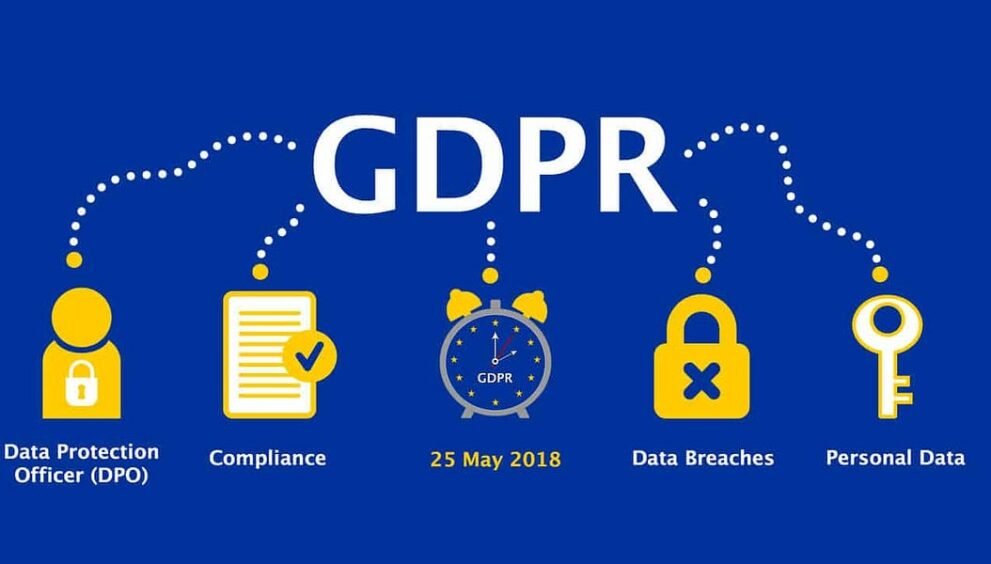Securing Legal Data: Best Practices and GDPR Compliance

Introduction
Business owners are required to keep an ever-growing amount of paperwork and data, it is more important than ever to have a secure and reliable system for legal data storage. In this article, we will discuss some of the best practices for securing your data and preventing unauthorized access.
The Types of Legal Data
When it comes to legal data storage, it’s crucial to understand the different types of data that need to be secured. Here are the three main categories:
- Sensitive Data: This includes information that is highly confidential and requires the highest level of protection. Sensitive data may include client communications, financial records, trade secrets, or personally identifiable information (PII) like social security numbers and medical records.
- Confidential Data: While not as sensitive as the previous category, confidential data still requires a certain level of protection. This may include internal legal documents, contracts, intellectual property, or attorney work product.
- Publicly Available Data: Not all legal data needs the same level of security. Publicly available data refers to information that is accessible to the public, such as court records, legal opinions, or publicly filed documents. While this data doesn’t require the same level of protection, it’s still important to ensure its integrity and accuracy.
Data Security Best Practices
When it comes to securing legal data storage, implementing effective data security best practices is crucial. These practices help ensure the confidentiality, integrity, and availability of sensitive information. Here are some key data security best practices to consider:
- Access Control: Implement robust access control mechanisms to restrict unauthorized access to legal data. This includes using strong authentication techniques such as multifactor authentication (MFA) and role-based access control (RBAC). Regularly review and update user access permissions to prevent unnecessary data exposure.
- Data Encryption: Encrypting legal data both when stored and during transmission provides an additional level of security. Utilize industry-standard encryption algorithms to safeguard data from unauthorized access. This includes encrypting files, databases, and communication channels to prevent data breaches.
- Data Backups: Regularly backup legal data to ensure its availability and integrity. Establish automated backup procedures and choose a reliable backup solution that meets compliance standards. Test the restoration process periodically to ensure the recoverability of data in case of any incidents.
- User Awareness and Training: Educate and train employees on data security best practices. Provide regular awareness sessions on identifying phishing attacks, using strong passwords, and recognizing social engineering attempts. Urge employees to immediately report any unusual or suspicious activities.
- Incident Response Plan: Develop and implement an incident response plan to effectively handle data breaches or security incidents. This includes establishing a dedicated response team, defining escalation procedures, and performing regular drills to ensure the readiness of the team.
You May Also Like: Data Management Best Practices for Legal Professionals
GDPR
The General Data Protection Regulation (GDPR) is a crucial aspect of legal data storage and protection. It was introduced to protect the personal data of individuals residing in the European Union (EU). Failure to comply with GDPR can result in severe penalties, making it imperative for businesses to understand and adhere to its guidelines.
Under GDPR, individuals have the right to know what personal data is being collected, how it is being used, and the option to request erasure or modification of their data. To meet these requirements, businesses should adopt the following best practices:
- Conduct a Data Protection Impact Assessment (DPIA): A DPIA helps identify and minimize privacy risks associated with the processing of personal data. It enables organizations to assess the legality, necessity, and proportionality of data processing activities.
- Obtain Consent: Prior to collecting personal data, organizations must obtain clear and explicit consent from the individuals. The consent must be clear, knowledgeable, and provided voluntarily. Individuals should also be able to easily revoke their consent at any time.
- Implement Data Minimization: GDPR emphasizes the principle of data minimization, which means that organizations should only collect and process personal data that is necessary for the stated purpose. Any unnecessary data should be promptly disposed of.
- Ensure Data Security: Organizations should implement robust security measures to protect personal data from unauthorized access, loss, or theft. This involves setting up access restrictions, encrypting data, and performing regular backups.
- Appoint a Data Protection Officer (DPO): GDPR requires businesses that process large amounts of personal data to appoint a DPO. The DPO is responsible for ensuring compliance with GDPR regulations, providing expert advice, and acting as a point of contact for data subjects and supervisory authorities.
- Conduct Regular Audits and Reviews: To ensure ongoing compliance, organizations should regularly audit their data storage and processing practices. This includes reviewing policies, procedures, and security measures to identify any potential vulnerabilities or areas for improvement.
HIPAA
HIPAA (Health Insurance Portability and Accountability Act) is a crucial compliance regulation that organizations handling medical data must adhere to in order to ensure the security and confidentiality of patient information. Under HIPAA, healthcare providers, health plans, and clearinghouses are required to implement specific safeguards to protect patient data. These safeguards include administrative, physical, and technical measures to ensure the confidentiality, integrity, and availability of electronic Protected Health Information (ePHI). Some key provisions of HIPAA include:
- Security Rule: The HIPAA Security Rule outlines the standards that covered entities must follow to protect ePHI. It requires implementing safeguards such as access controls, encryption, and regular security assessments to identify and mitigate vulnerabilities.
- Privacy Rule: The HIPAA Privacy Rule establishes the standards for the use and disclosure of individuals’ health information. It sets limitations on how healthcare providers and other covered entities can use and disclose protected health information, as well as individuals’ rights regarding their own health records.
- Breach Notification Rule: The HIPAA Breach Notification Rule requires covered entities to promptly notify affected individuals, the Secretary of Health and Human Services, and, in certain cases, the media, in the event of a data breach involving unsecured ePHI.
- Compliance with HIPAA is not only essential from a legal standpoint but also crucial for maintaining the trust and confidence of patients. By ensuring the implementation of HIPAA safeguards and regularly updating security measures, healthcare organizations can mitigate the risk of data breaches and unauthorized access to patients’ sensitive information.
CCPA
The California Consumer Privacy Act (CCPA) is a major compliance regulation that affects the way businesses handle consumer data in California. It grants consumers more control over their personal information and imposes certain obligations on businesses in terms of data protection. Here are key points to consider regarding CCPA:
- Consumer Rights: CCPA provides consumers with several rights, including the right to know what personal information is being collected, the right to delete their personal information, and the right to opt-out of the sale of their data.
- Data Mapping and Classification: To comply with CCPA, businesses must thoroughly understand the types of data they collect, process, and share. They should conduct a data mapping exercise to identify the exact categories and sources of personal information.
- Privacy Policy Updates: CCPA requires businesses to update their privacy policies to include specific disclosures about the types of personal information collected, the purpose of collection, and the rights provided to consumers.
- Consent and Opt-Out Mechanisms: Businesses need to implement mechanisms that allow consumers to provide explicit consent for the collection and processing of their personal information. Additionally, they must provide easy-to-use opt-out options for consumers who wish to restrict the sale or sharing of their data.
- Data Breach Notifications: Under CCPA, businesses are required to notify consumers in the event of a data breach that involves their personal information. The notification must be provided without unnecessary delay and should include specific details about the breach.
- Vendor Management: Businesses must also ensure that their third-party vendors and service providers comply with CCPA requirements. They should review agreements and contracts to ensure appropriate data protection measures are in place.
Data Storage Solutions
When it comes to storing legal data securely, choosing the right data storage solution is of utmost importance. Here are two main options to consider:
- Cloud-Based Solutions: Cloud storage has gained immense popularity in recent years due to its convenience and scalability. Cloud-based solutions offer a reliable and secure way to store legal data. Providers like Amazon Web Services (AWS) and Microsoft Azure offer robust cloud storage options that comply with industry standards and regulations. With cloud storage, legal firms can take advantage of features such as automated backups, disaster recovery, and advanced security measures. Additionally, cloud-based solutions provide flexibility, allowing authorized users to access data from anywhere, at any time.
- On-Premise Solutions: On-premise data storage refers to having physical servers and infrastructure within the organization’s premises to store legal data. This option provides complete control and ownership over the data. By implementing on-premise solutions, legal firms can tailor the security measures to meet their specific requirements. However, it is crucial to ensure that the on-premise infrastructure has robust security measures in place, including firewalls, intrusion detection systems, encryption, and regular software updates.
- Data Control and Compliance:
- On-premise solutions give you full control and flexibility over the data storage and access policies, aligning with strict legal and compliance requirements.
- By maintaining physical control over the infrastructure, you can ensure compliance with regulations such as the European Union’s General Data Protection Regulation (GDPR), the Health Insurance Portability and Accountability Act (HIPAA), and the California Consumer Privacy Act (CCPA).
- Customization and Scalability:
- On-premise solutions allow for customizations tailored to your specific legal data storage needs and operational requirements.
- You can easily scale your infrastructure and storage capacity as your data volumes grow, ensuring seamless expansion without relying on third-party providers.
- Reliability and Performance:
- With on-premise solutions, you have greater control over the reliability and performance of your data storage infrastructure.
- You can optimize network connectivity, hardware configurations, and redundant systems to minimize downtime and ensure fast and efficient access to legal data.
- Cost Considerations:
- Implementing on-premise solutions may require higher initial investment compared to cloud-based alternatives, as it involves acquiring and maintaining hardware and software infrastructure.
- However, in the long run, on-premise solutions can offer cost savings as there are no recurring subscription fees associated with third-party cloud providers.
Conclusion
Conclusion Data security is one of the most important considerations when it comes to protecting your business data. You don’t want to risk your confidential information falling into the wrong hands, do you? There are a number of steps you can take to make sure your data is secure and inaccessible to unauthorized users. I have outlined some of the best practices below, so you can start protecting your business data today. Use a secure password Make sure your password is unique and difficult to guess. Don’t use easily accessible words or easily guessed words that are in the public domain. Ensure your data is backed up Make sure your data is always backed up in a secure location. Use a reliable backup service or create your own backups. Install security software Install security software on your computer and on the devices that access your data. This will protect your data from fire, theft and other forms of cyber attack. Train your employees Make sure your



































































































































































































































